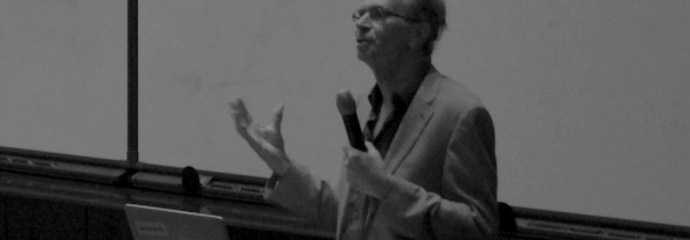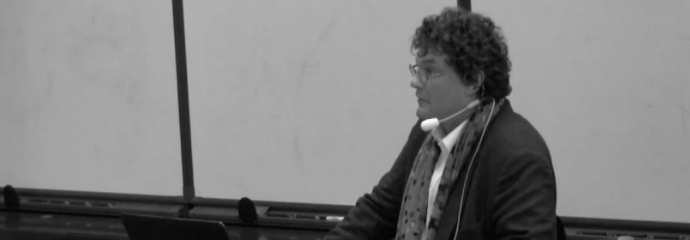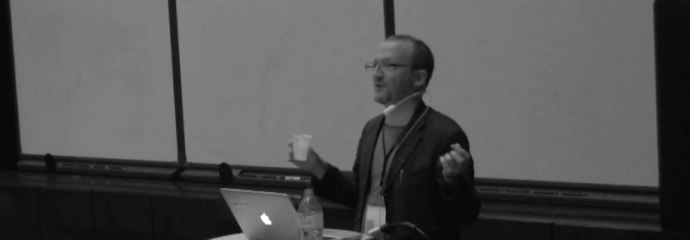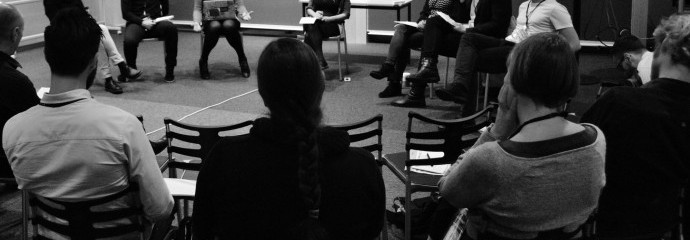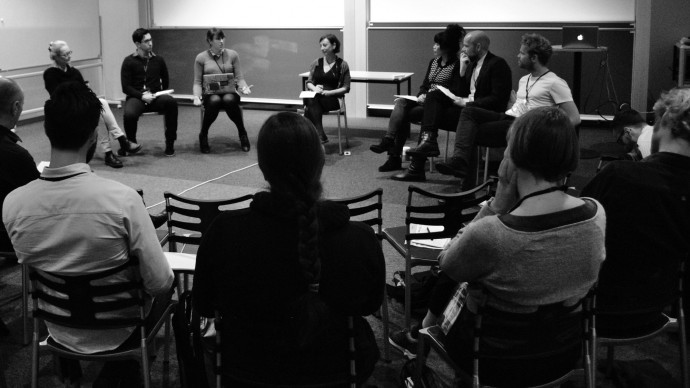Watch John Urry’s keynote, Networks, Systems and Futures
John Urry, Distinguished Professor of Sociology at Lancaster University, closed the Networked Urban Mobilities conference with a talk providing perspectives of past and future systemic changes in energy use. Drawing on complexity and systems theory the talk provides a deep theoretical understanding of complex relations between social practices and energy consumption. Additionally, the talk addresses critical issues concerning lock-ins in ‘high-carbon societies’ and the wicked problems that follows. Finally, Urry presents four urban futures and examines the transformations in mobility and social life that each scenario entails.
Read about John Urry’s experience at the Networked Urban Mobilities conference below the video.
We sat down with John Urry for a quick talk about his experience of the Networked Urban Mobilities conference.
Oskar Funk: What will you take with you from this conference?
Well, I supposed would be the contrast with the first mobility conference in 2004 that I and handful of other people here were at. That was quite formed around Ulrich Beck and “Risk Society”, mobility and risk society. What there hadn’t been was a program of research with these various kinds of mobility methods, mobile methods, not much theory and not much detailed examination of the kinds of processes, roots, forms, consequences of mobility on the go.
Oskar Funk: So it was still a very static kind of science back then?
Yes, it was static, sort of. The main thing that was research were risks and to some extent systems, but the systems were transport systems, so there hadn’t been so much of the shift from transport to mobility really. I don’t think we were as clear about that distinction as we are now.
Oskar Funk: Were there any things that caught you by surprise at this conference, as someone who has been in the mobilities studies for a long time?
(Laughs) Well, I didn’t actually attend the sessions, but the general area of disasters. I know about it, but I think it is still interesting that people see mobilities and the complex organizing and orchestrating of mobilities in disasters. I think that is interesting. I have been interested in that in the last year or two, and I think that it is well reflected in some of the papers here. I suppose the second thing was Vincents (Kaufmann) stuff about the car and the decline, and his argument about that, which I don’t quite agree with, but it is becoming much more clearly accepted that the increase in car use in western countries has almost certainly stopped, and it may have reversed. It’s interesting that people didn’t really challenge what Vincent said, they challenged the specific theory, the processes that he referred to, but I thought that was interesting.
Oskar Funk: You have worked with many different concepts and topics. From beyond the car, to offshoring and now post-carbon societies. It seems like there is always a new dimension opening up, so what new directions do you see the mobilities paradigm taking?
Personally I get bored with topics you see, so I have to move on (laughs). Well… Maybe one thing that was missing here was actually China, India and Brazil, the BRIC countries. Because clearly, what happens in those countries and societies is going to be so significant. I think there is going to be much more analysis and examination of similarities and differences between them. That also relates us to the question of the situations and the developments that has to do with futures I suppose, the whole array of future studies. I think that is going to be more significant, and doing it in a way that is more than extrapolation, in a way where the social is a core part. Also, the topic of verticality, (The subject of Stephen Grahams keynote) was very interesting. Vertical cities, vertical mobilities and the way that effects urban design and so on.

